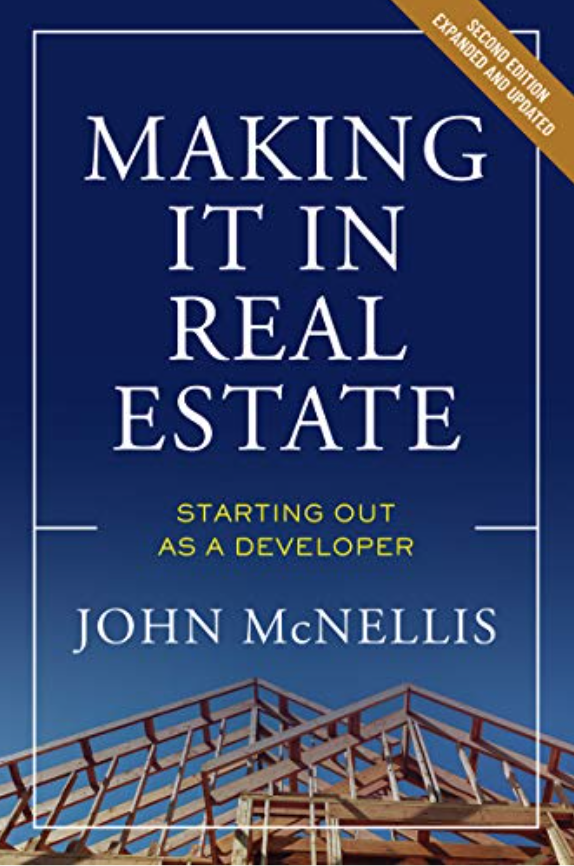Full version of this video can be seen HERE.
Part One: Quit your Job?
Over a beer last week, a young friend recounted his progress with a retail development firm. I was surprised to hear how much he had learned and how much responsibility he already had. When he explained his lead role on a mixed-use project, I asked how profitable the development would be for the company. He guessed about $10 million. I asked if he had a profit share. Reluctantly, he explained that he had been promised a percentage in the deal, but that his employer, a man of infinite wealth, had gone silent on the issue. With nothing in writing and the project’s final entitlements days away, he could only hope his boss would honor his word.
It could be this jillionaire simply has a lot on his mind—which jet to use for the St. Tropez trip can be a consuming decision—or it could be that no amount of wealth will ever make him do the right thing.
Business has few certainties, but one is this: Employees are seldom paid more than “Go-money.” That is, companies large and small, public and private, will pay enough to keep their key employees from going elsewhere. The publics blame their parsimony on their duty to their shareholders, and the privates blame their silent, but surprisingly stingy partners.
“Greed is not good enough.”
If your dissatisfaction is with the job itself—and not your income—you should quit. That is, if you can afford the cash flow hit. If you’re an entrepreneur at heart and the only decision you’re making at work is where to park in the morning, quit. If you can cobble together a year’s worth of living expenses and go into business and fail, what’s your downside? Merely the salary loss from your crappy job. And if you have to white-flag it back to the corporate world, you will be more valuable because of your experience. Potential employers will know you are ambitious, that you have an owner’s perspective and that—let’s face it—you’re unlikely to bolt again.
It’s a different story if it’s all about the money. If you love your job and your hunger is only for wealth, then ask yourself when you’re sober—or better yet, badly hung over—if you’re really worth more than Go-money. If you still think so, explain to your boss how valuable you are, ask for a big raise and then listen hard to his reply. He’s your boss for a reason; he has more experience than you do, and it’s even theoretically possible that he’s smarter than you or at least a better businessman (these are two entirely different things: many of the smartest people I know are terrible at business). And if he says your compensation is fair, he may be right.
In my experience, those who start a business just to get rich almost never succeed. The ones who make it are those who love what they’re doing and only start their own companies either because they have no choice (no one will hire them), they want to be their own boss or because they think they can do it better on their own. They believe they will be more productive—and have more fun—if they can peel away the corporate bureaucracy, the weekly team conference calls, the Sisyphean reporting requirements, the multiple sign-offs needed for deals and even the mandatory company socializing.
I asked George Marcus, one of the most successful men in American real estate, what he thought about starting a company for the money. “Anyone dreaming of going into business just to get rich is fooling himself. You start a business because you have a passion to improve a business strategy or an industry.” George knows what he’s talking about; at 25, he started Marcus & Millichap and finally took it public last year (the stock price has since doubled). He is also the founder and principal shareholder of another public company, Essex Property Trust, arguably the country’s best-performing REIT over the past 20 years.
Mervin Morris, a giant in the retail industry and founder of the fabled Mervyn’s department store chain, told me simply, “I went into business for myself because I wanted to be my own boss and make a comfortable living.” Personally, I switched from real estate law to development because it seemed to me that developers have a lot more fun than lawyers (I was right). My sole financial ambition at the time was to make as much as a developer as I would have as a lawyer.
Turning Gordon Gekko’s aphorism on its head, greed is not good enough.
Where does all this leave my young friend who loves his job and its challenges, but who will likely end up unhappy with his compensation? (By the way, if you can succeed at running your own business, you will always be unhappy with your compensation if your name isn’t on the door.) If, like George, he thinks he can do it better on his own or, like Merv, he wants to be his own boss, or, like me, he wants to have more fun, then he should consider setting up shop.
But to paraphrase the teachings of Siddhartha, there is a “middle way” that we will explore in the next installment of “Making it in Real Estate.” Stay tuned for Part Two: Doing It on the Side.


